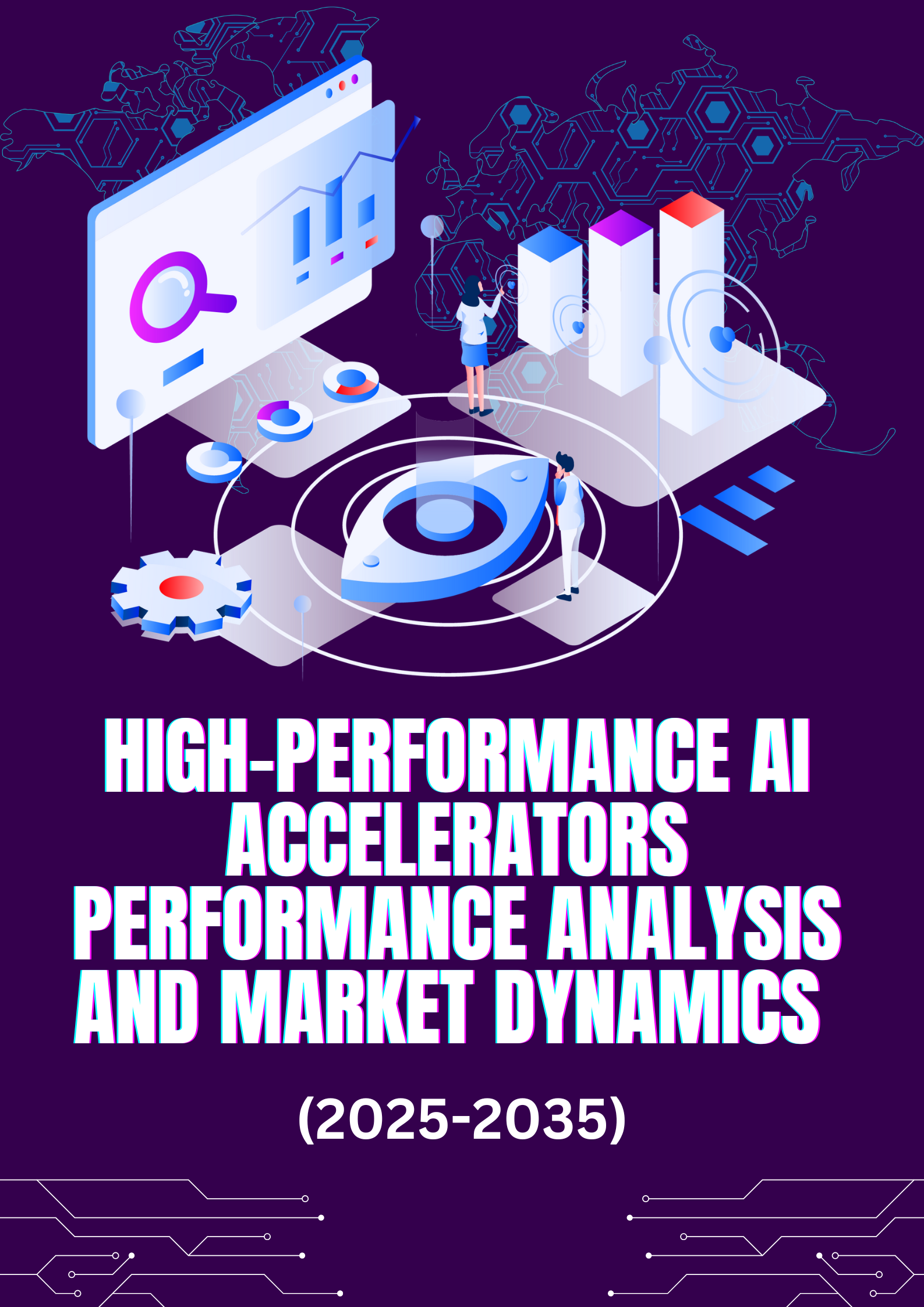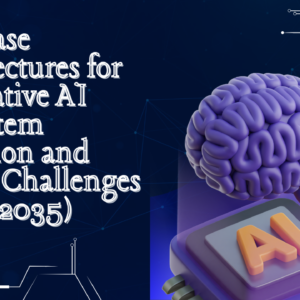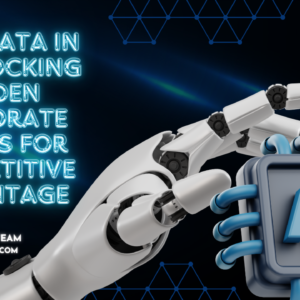1. Executive Summary
-
- Key trends in AI accelerator technology
- Critical factors influencing performance and adoption
- Overview of major challenges and opportunities in the market
2. Overview of Advanced AI Accelerators
a. Architectural Approaches
-
- GPU-based accelerators
- APU (Accelerated Processing Unit) designs
- Specialized AI chips and accelerators
b. Key Performance Metrics
-
- Floating-point operations per second (FLOPS)
- Memory bandwidth and capacity
- Interconnect speeds
- Power efficiency (Performance per watt)
c. Target Applications
-
- Deep learning training and inference
- High-performance computing (HPC)
- Scientific simulations
- Large language models and generative AI
3. Technical Comparison of Latest Generation AI Accelerators
a. Compute Performance
-
- Peak theoretical performance (FP64, FP32, FP16, INT8)
- Tensor core capabilities
- Scaling efficiency in multi-chip configurations
b. Memory Subsystem
-
- Memory capacity and type (HBM2e, HBM3)
- Memory bandwidth
- Cache hierarchies and on-chip memory
c. Interconnect and Scalability
-
- Node-to-node communication bandwidth
- Multi-GPU and multi-node scaling capabilities
- Support for industry-standard interconnects (NVLink, Infinity Fabric)
d. Software Ecosystem and Programmability
-
- Supported frameworks and libraries
- Ease of programming and optimization
- Compatibility with existing codebases
e. Power Consumption and Efficiency
-
- TDP (Thermal Design Power)
- Performance per watt across different workloads
- Cooling requirements and data center implications
4. Benchmarking and Real-World Performance
a. Standard Benchmarks
-
- MLPerf results
- LINPACK and TOP500 rankings
- Application-specific benchmarks (e.g., BERT, ResNet)
b. Workload-Specific Performance
-
- Training large language models
- Inference for computer vision tasks
- Scientific computing and simulation performance
c. Scalability and Multi-Node Performance
-
- Performance scaling in large clusters
- Efficiency in distributed training scenarios
5. Market Positioning and Competitive Dynamics
a. Target Market Segments
-
- Hyperscale data centers
- Enterprise AI and HPC
- Research and academia
- Emerging edge AI applications
b. Go-to-Market Strategies
-
- Direct sales vs. OEM partnerships
- Cloud service provider collaborations
- Developer outreach and ecosystem building
c. Pricing and Total Cost of Ownership (TCO)
-
- Hardware costs
- Power and cooling expenses
- Software licensing and support considerations
6. Challenges and Limitations
-
- Memory bandwidth bottlenecks
- Programming complexity and optimization challenges
- Cooling and power delivery in dense deployments
- Balancing specialization with general-purpose computing
7. Future Outlook (2025-2035)
-
- Projected advancements in AI accelerator architectures
- Emerging technologies (e.g., photonics, neuromorphic computing)
- Potential disruptions in the AI hardware landscape
8. Case Studies (Generalized)
-
- Successful deployments in various AI and HPC scenarios
- Performance comparisons in specific application domains
- Lessons learned from large-scale implementations
9. Strategic Implications for Stakeholders
-
- Key considerations for AI researchers and practitioners
- Implications for data center designers and operators
- Long-term planning for HPC and AI infrastructure
10. Conclusion
-
- Summary of key performance differentiators
- Critical factors for selecting AI accelerators
- Future trends shaping the AI hardware market
11. Appendices
-
- Glossary of AI accelerator and HPC terms
- Detailed benchmark methodology and results
- TCO calculation framework for AI infrastructure
#AIAccelerators #AIHardware #DeepLearning #HPC #AIChipDesign #GPUs #APUs #AIChips #FLOPS #TensorCores #PerformancePerWatt #AIInference #GenerativeAI #MemoryBandwidth #InterconnectSpeeds #MLPerf #TOP500 #LargeLanguageModels #AITraining #ScientificComputing





